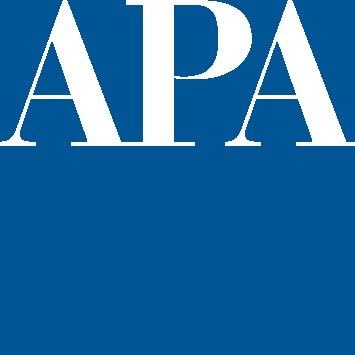
CHICAGO, USA — The American Planning Association (APA) has received its second Energy and Climate Partnership of the Americas (ECPA) grant from the U.S. Department of State.
With this grant, APA is working with four nongovernmental organizations (NGOs) in Peru, Bolivia, Mexico and Brazil to integrate urban and regional planning processes and improve quality of life. Through designated projects, APA and its partner organizations, will demonstrate the importance and value of comprehensive urban planning in combating energy and climate challenges. The projects also will address various challenges facing rapidly urbanizing communities such as environmental concerns, economic development, social equity, community participation and governance.
The four projects were selected from among the nearly 300 entries in the Ashoka Changemakers Sustainable Urban Housing: Collaborating for Livable and Inclusive Cities Platform Competition that was held in 2010–2011. APA will provide technical assistance, professional support and sub-granted financial support to the four project partners. The projects are:
Fostering Sustainable Transit-Oriented Development in Public Spaces in Mexico City, Mexico
Low-income communities in Mexico are usually the farthest from the city center. Commuting costs, unequal distribution of land (too many roads, too few public spaces or services) and abandoned houses all contribute to community isolation and affect quality of life. EMBARQ México, an NGO in Mexico City, will undertake a pilot project in Mexico’s capital to improve public space and serve as a case study for transit-oriented development (TOD) strategies. The project will include an assessment of public space; engage residents through community workshops that propose solutions; and implementation of a pilot project. Additionally, a video documenting the transformation of the pilot project site and a manual that details how to assess and create public space for Mexican municipalities will be created.
Linking Collective Property Rights to Women’s Empowerment in Bolivia
Hábitat Para La Mujer Comunidad María Auxiliadora (Habitat for Women Community Maria Auxiliadora), located in Cochabamba, Bolivia, is a community of collectively owned properties whose residents work together to build their community and create an atmosphere that supports women as leaders. With APA, the community will focus on three objectives: strengthen and promote collective property rights; develop women’s leadership skills; and build a school for women’s leadership. The three activities complement the community’s efforts to create a formal, well-planned community that organizes the community and respects the environment by optimizing communal open space and using affordable green construction.
Connecting Recycling with Building Materials and Housing Rehabilitation Skills in a Brazilian Favela
Housing stock in Brazil’s informal settlements, or favelas, is usually built through collective efforts, individually over time, or by hiring local unskilled labor. Builders are typically untrained. Their architectural decisions result in inefficient energy designs and unhealthy living conditions. APA is working with Soluções Urbanas (SU) to expand its Family Architect Project. The Project currently trains families in sustainable housing renovation techniques and establishes a local market to acquire building materials in exchange for recyclables. Expanding the project will: create a building materials bank; provide infrastructure to store and transport construction materials; partner with organizations to develop technical programs; and create a trained construction workforce.
Urban Regeneration and Social Inclusion in Peru
Approximately 1.5 million of the 8.5 million inhabitants in Peru’s Lima Metropolitan Area live in slum housing. La Eficiencia Legal Para la Inclusión Social’s (ELIS) Rimac Reborn Project will assist with the revitalization of downtown Lima’s historic Rimac District. One challenge is 95 percent of the buildings are not occupied by the property owners. Titleholder abandonment of properties allows the area to fall into disrepair. ELIS and APA will assist 60 families in the Rimac District gain access to credit, acquire property rights to the current buildings they inhabit, and attract builders to invest in the redevelopment projects.
Grant support will be provided to all four projects through July 2013. APA’s Sustainable and Inclusive Housing and Community Development Program webpage will provide project updates.
ECPA is an umbrella of initiatives that partner public, private, and academic organizations to promote sustainable development, the use of alternative energy, and the elimination of poverty. The first grant, awarded to APA in 2010, was used to build capacity for urban planning and promote sustainable development in Latin America and the Caribbean as part of the larger global ECPA work. The second grant builds upon this work.
This post originally appeared on www.planning.org/newsreleases/2012/nov12.htm.

 View Map
View Map